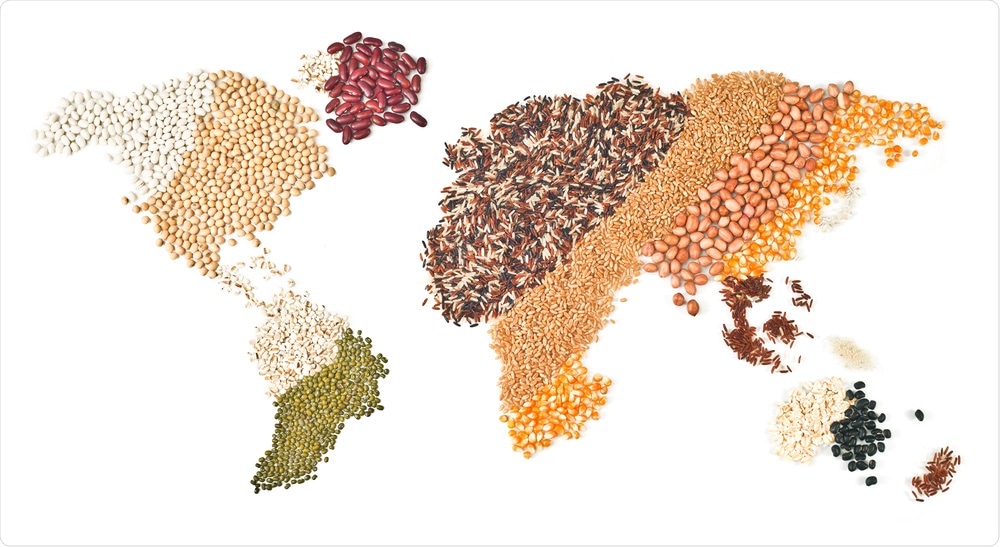Global food production is incredibly efficient, and the world's farmers produce enough to feed the global population.

Image Credit: SCOTTCHAN/Shutterstock.com
Despite this abundance, a quarter of the global population does not have regular access to sufficient and nutritious food. A growing and more affluent population will further increase the global demand for food and create stresses on land, for example, through deforestation.
Additionally, climate change is a major threat to agriculture. Increased temperatures have contributed to land degradation and unpredictable rainy seasons can lead to crop failure. While climate extremes impact the ability to produce food, the guarantee of food is more than just agricultural productivity.
Today's globalized food system consists of highly interconnected social, technical, financial, economic, and environmental subsystems. It is characterized by increasingly complex trade networks and an efficient supply chain, with market power located in the hands of few.
A shock to the food system can lead to ripple effects in political and social systems. The 2010 droughts in wheat-producing countries such as China, Russia, and Ukraine, led to major crop failures, pushing up food prices on the global markets.
This in turn was one of the factors that led to deep civil unrest in Egypt, the world's largest wheat importer, as people were facing food shortages, which possibly contributed to the 2011 revolution spreading across the country.
Not all shocks to the global food system are directly linked to agricultural productivity or climatic conditions. The vulnerability of the interconnected food system has become painfully evident in recent months following the appearance of a different type of shock: a global pandemic.
Although it started as a health crisis, COVID-19 quickly filtered through the political, social, economic, technological, and financial systems. Business interruptions resulted in a chain reaction that is projected to contribute to food crises in many parts of the world.
"Although harvests have been successful and food reserves are available, global food supply chain interruptions led to food shortages in some places because of lockdown measures," writes the author of the commentary Franziska Gaupp, an IIASA researcher working jointly with the Ecosystems Services and Management (ESM) and Risk and Resilience (RISK) programs.
Products cannot be moved from farms to markets. Food is rotting in the fields as transport disruptions have made it impossible to move food from the farm to the consumer. At the same time, many people have lost their incomes and food has become unaffordable to them."
The World Food Program has warned that by the end of 2020, an additional 130 million people could face famine. In the fight against the global COVID-19 pandemic, borders have been closed and a lack of local production has led to soaring prices in some countries. In South Sudan, for example, wheat prices have increased by 62% since February 2020. Difficult access to food and related stress could then lead to food riots and collective violence.
According to Gaupp, a systems approach is needed to address the challenges of a globally interconnected, complex food system. Systemic risk and systemic opportunities need to be incorporated into food-related policies.
It is important to highlight that the threat to food security is not just a result of potential disruptions of production but also shocks to distribution as well as shortfalls of the consumers' income. COVID-19 has shown how interconnected our world is, and how a simultaneous shock - such as a pandemic - also affects our food system.
She further points out that the issues are supply chain imbalances. There is enough for everyone, however, some countries are panic buying, and some are banning exports: This is why the whole supply and demand system is experiencing challenges, leading to more difficult access to food, especially in poorer countries.
There will likely be more shocks hitting our global food system in the future. We need global collaboration and transdisciplinary approaches to ensure that the food chains function even in moments of crises to prevent price spikes and to provide all people with safe access to food,"
Gaupp
Journal reference:
- Gaupp, F et al (2020). Extreme Events in a Globalized Food System. One Earth DOI: 10.1016/j.oneear.2020.06.001